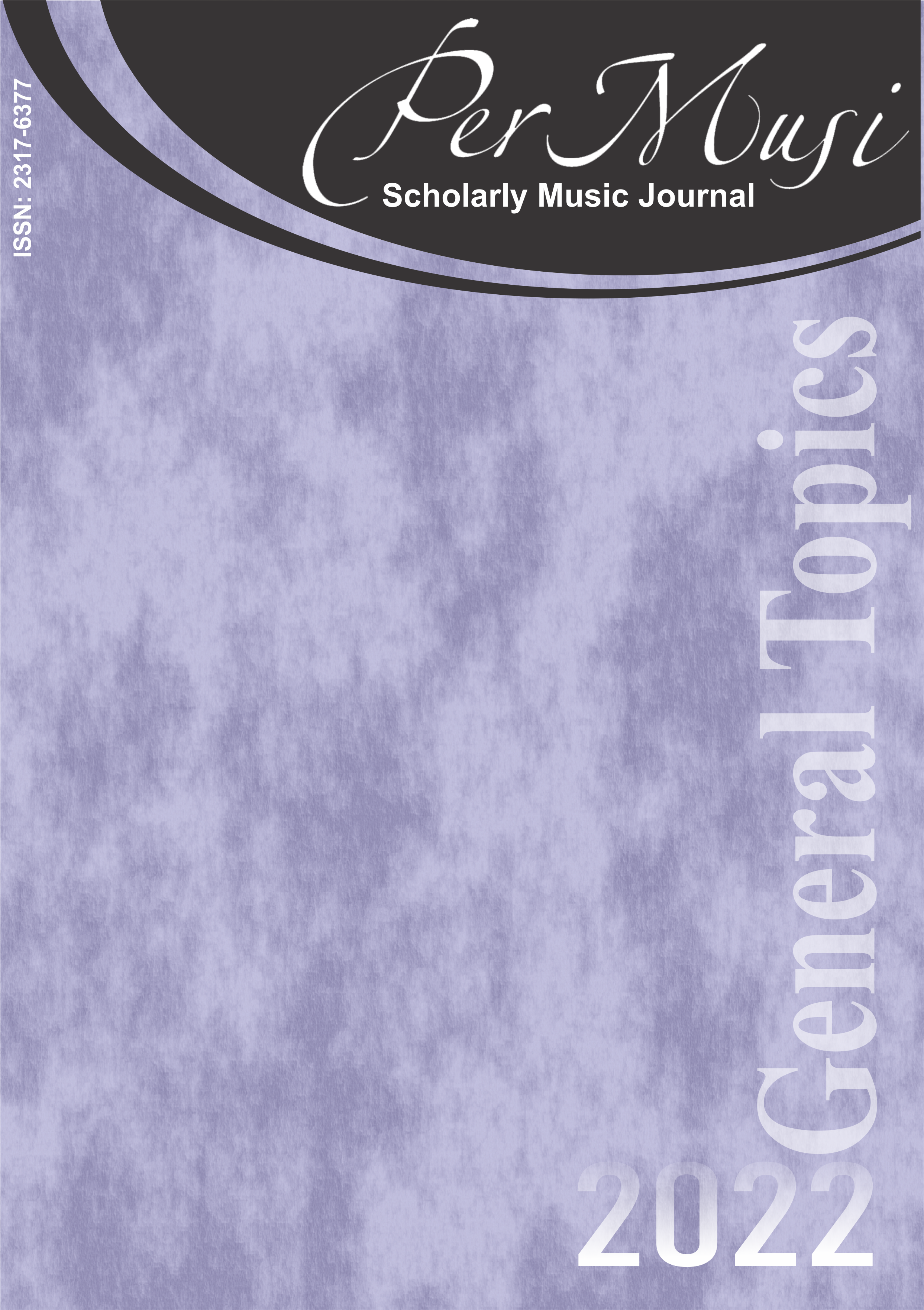Música Antiga, Notação e Performance
entrevista com Clive Brown
DOI:
https://doi.org/10.35699/2317-6377.2022.39099Palavras-chave:
Clive Brown, Música Antiga, Notação Musical, Edição Crítica, Práticas InterpretativasResumo
Nesta entrevista concedida a Marcus Held, Clive Brown discorre sobre sua carreira dedicada às investigações históricas relacionadas à música dos séculos XVIII e XIX, com ênfase nas práticas interpretativas do passado. Brown, que testemunhou a consolidação do campo da Música Antiga na Inglaterra, relembra os processos de (re)descoberta não apenas do repertório, mas também do pensamento musical pregresso. Com particular interesse na notação musical e seus processos de intelecção, o pesquisador aponta que a abordagem da partitura mudou definitivamente ao longo dos séculos e, com isso, estão postos diversos desafios para a atividade da edição musical contemporânea.
Referências
Brown, Clive. 1991. Historical Performance, Metronome Marks and Tempo in Beethoven’s Symphonies. In: Early Music, 19 (2), 247-258.
_______________. 1999. Classical and Romantic Performing Practice, 1750-1900. Oxford: Oxford University Press.
_______________. 2021. The deceptive simplicity of musical notation. https://www.youtube.com/watch?v=d2BUt52zYCs. Access: March 1st, 2022.
Downloads
Publicado
Edição
Seção
Licença
Copyright (c) 2022 Per Musi

Este trabalho está licenciado sob uma licença Creative Commons Attribution 4.0 International License.

Exceto onde está indicado, o conteúdo neste site está sob uma Licença Creative Commons - Atribuição 4.0 Internacional.












